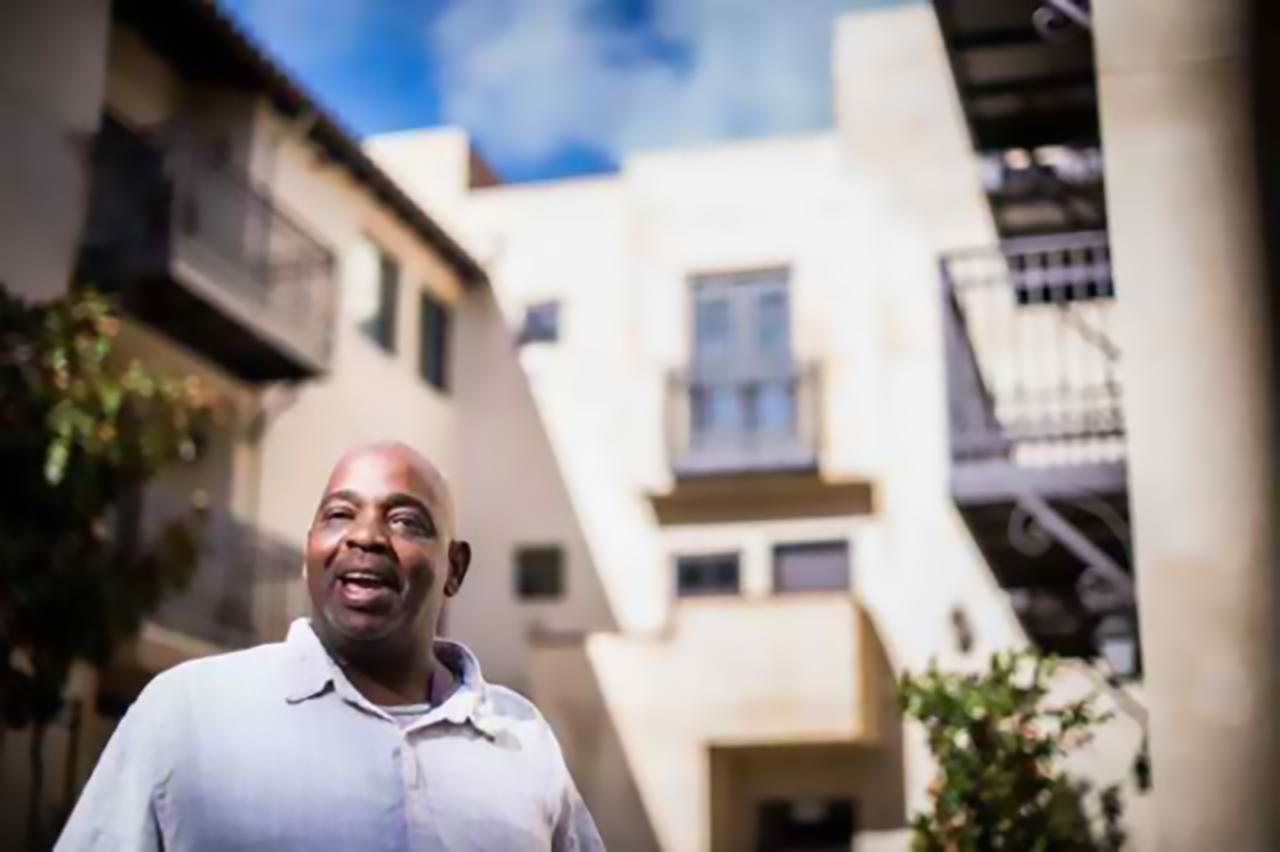PASADENA >>> Stanley Charles Sr. suffered two heart attacks before he turned 45.
His deteriorating health sidelined him from his long-time job as a truck driver. His income bottomed out and then his marriage followed.
The children stayed with their mother. Charles landed on the streets.
By 2013, he was living in a truck parked usually somewhere in Altadena or Pasadena. He learned the streets less traveled by parking enforcement and woke up early to avoid their tickets.
“You never think you’ll be homeless,” Charles said Wednesday, resting on a cane in the courtyard of his first home in three years. “You never think you’ll need to be thrown a life line.”
Charles and his son are one of 19 families now living at Marv’s Place, a permanent supportive housing program named after Rabbi Marvin Gross, the longtime head of Union Station Homeless Services who retired last year. Union Station and National Community Renaissance partnered on the project near Union Street and Mar Vista Avenue in Pasadena through a mix of private and public funding, including dollars from the city.
The Mediterranean style, three-story building blends into the neighborhood. Residents have access to support services five days a week. There’s workshops on budgeting, parenting and an open door for those who need to vent, but there’s also a nudge when someone needs to stand on their own.
“We want to break cycles of poverty, we want to break cycles of despair,” said Cid Pinedo, senior vice president for public affairs for National CORE. “We believe in changing lives.”
The property is one part of an effort to reduce homelessness in Pasadena that by all accounts is starting to pay off.
There’s more than 60 people living on the property now. At least half are children. The families were chosen from a closed process that selected those most likely to succeed. A voucher for a rental subsidy is tied to each apartment, rather than to the tenant. When someone moves on — usually with heavy guidance from the on-site support — someone else qualified for the voucher can move in and receive the same subsidy, Pinedo said. The hope is to get families back on their feet, then help them move on, but the housing doesn’t have a time limit on it.
Rochelle McCollum spent two months living in a car with her four children — ages 1 to 17 — after they were forced out of her mother’s one-bedroom home in El Monte by their landlord. She had moved in to help her mother with an illness, but then she had no where else to go.
They would come back when they could to shower or to eat, but most days were spent at the park, waiting for the older children to get out of school. The children released at varying times adding another complication to McCollum’s efforts to get help.
If she ran into a friend, she would ask if the family could come to use the showers.
At night, they would bounce from fast food place to fast food place to eat and to use the restroom. She said she had to weigh the cost of hotels rooms against whether there would be enough money to also eat.
“I felt like a failure,” McCollum said. “Every way, I told them I was sorry.”
They ended up at Union Station’s Family Center, where they stayed for five months. McCollum hounded the staff everyday about the openings at Marv’s Place, said Lori Nipper, a staff member at the Family Center who helped with the application process and who now works at Marv’s Place.
The family moved in the same day they signed their lease.
“There is hope, I promise you,” McCollum said Wednesday, as her two youngest ran through the apartment waving around bags of apple slices.
For Charles, hope took time and, from his perspective, a bit of divine intervention.
The now 49-year-old thought he would die on the streets. If his health problems didn’t kill him first, he feared his waning hope would lead him to his death.
A year after Charles lost everything, his 16-year-old son became homeless too. Charles asked that his son not be named because of the stigma around homelessness.
Charles doesn’t claim to have been the best dad, or son, or brother, but he said he tried.
He didn’t want to see his son go down the same path, and in a way, his son’s situation gave him the will to push forward, to try to find a permanent home for both of them.
It wasn’t easy, Charles said he saw the same despair set in for his son. The teen didn’t want to go to school, because when the day ended, he had to go back to being homeless, something his friends didn’t know.
Coincidentally, it was Rabbi Gross — the namesake of Marv’s Place — who pushed Charles to go to Union Station for help. Charles had once worked there in the 1990s, but thought his past employment would disqualify him.
Then he spoke to Gross at a Thanksgiving dinner for the homeless and the rabbi set him straight.
“I got some hope again,” Gross said.
He and his son ended up in a shelter for families, the same one seeking applicants for the new permanent housing project off Mar Vista.
Charles moved in October after three years without a bed to call his own. It was completely furnished, Charles and his son just had to “shower and get into bed,” he said with a laugh.
“It felt like a 10,000 pound elephant was lifted off my chest,” he said.
Now, there’s a chance for normalcy again, he said. And this one doesn’t end when the bell rings.

